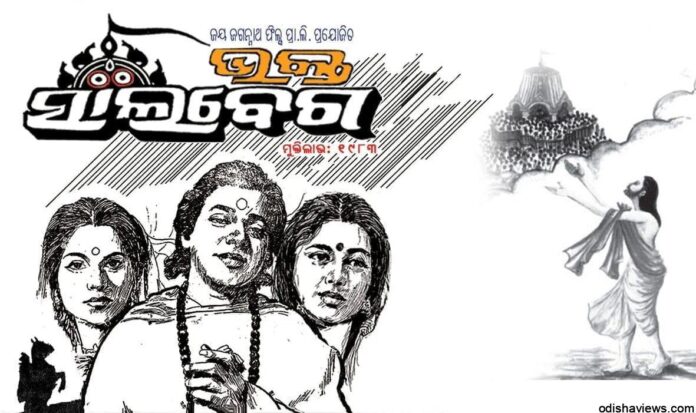Bhakta Salabega was a famous odia religious poet and devotee of Lord Jagannath, one of the primary Hindu deities. His renowned devotional song Ahe Nila Saila continues to be cherished even today.
Salabega was born into a muslim family in the early 17th century in the village of Alasa in the Puri district of Odisha, India. His father Lalbega was a subedar in the Mughal army. In his youth, Salabega participated in his father’s military campaigns and sustained severe injuries during one battle. While struggling to survive, he followed his mother’s guidance and recited the sacred name of Vishnu, which cured him miraculously.
Salabega’s mother introduced him to Jagannath, also known as Vishnu. Filled with wonder and excitement, he traveled to Puri to visit the temple of Jagannath but was denied entry due to his Muslim faith. He then journeyed on foot to Vrindavan, where he lived as an ascetic in the company of sadhus, composing devotional songs in honor of Krishna. After a year in Vraja, he returned to Puri to witness the Ratha Yatra festival but fell ill on the way.
Feeling helpless and unable to reach Puri in time for the festival, he prayed to Jagannath to wait for his arrival. On the day of the Return Cart festival, Nandighosa, Jagannath’s cart, remained stationary until Salabega arrived. The spot where the cart stopped became a sacred place where Salabega composed many bhajans in honor of Jagannath. After his death, his body was cremated at the same location, and his Samadhi still stands on the Grand Road in Puri, near Balagandi. In his honor, every year during the Rath Yatra, Jagannath’s cart halts briefly near Salabega’s Samadhi.
His poetry, which was composed in Odia, is considered to be a significant contribution to Odia literature. Salabega’s poems are full of devotion and love for Lord Jagannath and are still recited and sung by devotees during religious festivals in Odisha.
Salabega is also known for his social and political activism. He protested against the caste-based discrimination prevalent in society during his time and advocated for the rights of the oppressed and marginalized communities. He also opposed the British East India Company’s rule in India.
Salabega died in 1807, but his legacy lives on in the form of his poetry and his contributions to social and political reform in Odisha.

